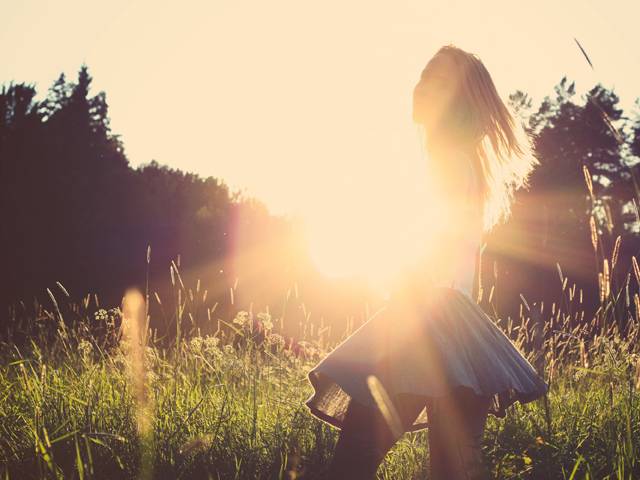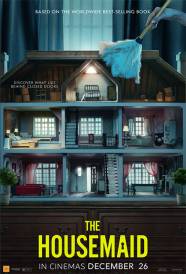Sunburnt On Summer Weekends

Australasian College of Dermatologists and Cancer Council empower teens to #ownyourtone during National Skin Cancer Action Week
Cancer Council is encouraging teens to be SunSmart this National Skin Cancer Action Week, with new research released showing one in four (26 per cent) teenagers are getting sunburnt on summer weekends.
Cancer Council's National Sun Protection Survey compared sun protection habits of teenagers aged 12-17 over time to form a picture of how well Australian teens are protecting themselves from harmful UV (ultraviolet) radiation. The latest survey results show there has been no significant decrease in teenage sunburn rates in the last 12 years.
Anita Dessaix, Chair, Public Health Committee, Cancer Council Australia said, it added to the urgency for government to run a national skin cancer awareness campaign, which was one of Australia's great public health successes at its high point more than 12 years ago.
"The findings from the National Sun Protection Survey are extremely worrying. Over half a million teenagers are getting sunburnt on an average summer weekend - increasing their risk of getting skin cancer in the future.
"Teenagers are a priority population. They spend lots of time outdoors and not enough are adopting sun protection behaviours.
"The damage caused in the teenage years also significantly increases the risks of skin cancer in later life.
"This data shows that urgent action is needed to do more to reinforce the "slip, slop, slap, seek and slide" message. Teenagers are smart but it has been 12 years since we have seen significant investment in a national mass media skin cancer awareness campaign.
"When looking at each of the five measures of sun protection, only 10 per cent slipped on a sun protective top 38 per cent of teenagers slopped on SPF 30 or higher sunscreen, 38 slapped on a hat, 23 sought shade and 21 per cent slid on sunglasses."
Ms Dessaix explained that teenagers need to be reminded and supported to use a range of sun protection measures, choose the right type of hat and reapply sunscreen regularly and liberally.
"Sunscreen was one of the two most common sun protection measures used by teenagers. However, sunscreen is not a suit of armour and needs to be used alongside broadbrimmed hats, shade, sunglasses and clothing, as well as applied correctly.
"We also know that many teens are wearing caps, rather than broadbrimmed hats, leaving their neck and ears exposed."
While the results showed overall teens aren't protecting themselves enough there were some small improvements over time.
"Teenagers in the latest survey were more likely to use three or more forms of sun protection compared to the three years prior" Ms Dessaix explained.
Professor David Francis, President of the Australasian College of Dermatologists said "With two in three Australians diagnosed with skin cancer by the age of 70 and over 2,000 deaths due to skin cancer in Australia each year, it is vital to get the message through about sun protection in Australia.
"We need all Australians to understand that sunburn is the result of damage to the skin. The single greatest risk factor for skin cancer is excessive exposure to UV and it is largely preventable by adequately protecting yourself from the sun.
"We should be using sun protection whenever UV levels are three or above.
"Bearing this in mind, we encourage teenagers to #OwnYourTone and protect their natural skin tone to avoid ending up red-faced this summer.
"By educating teenagers on the importance of sun protection, we can prevent a rise in the number of skin cancer diagnoses in the future."
National Skin Cancer Action week runs from 17-23 November and is a partnership between Cancer Council and the Australasian College of Dermatologists to encourage people to use skin protection and drive awareness of the importance of early skin cancer detection.
At least two in three Australians will be diagnosed with skin cancer by age 70.
Over 2000 people die from the disease each year. Cancer Council estimates that Australia spends more than $1 billion per year treating skin cancer, with costs increasing substantially over the past few years.
Photo by Julia Caesar on Unsplash
Cancer Council is encouraging teens to be SunSmart this National Skin Cancer Action Week, with new research released showing one in four (26 per cent) teenagers are getting sunburnt on summer weekends.
Cancer Council's National Sun Protection Survey compared sun protection habits of teenagers aged 12-17 over time to form a picture of how well Australian teens are protecting themselves from harmful UV (ultraviolet) radiation. The latest survey results show there has been no significant decrease in teenage sunburn rates in the last 12 years.
Anita Dessaix, Chair, Public Health Committee, Cancer Council Australia said, it added to the urgency for government to run a national skin cancer awareness campaign, which was one of Australia's great public health successes at its high point more than 12 years ago.
"The findings from the National Sun Protection Survey are extremely worrying. Over half a million teenagers are getting sunburnt on an average summer weekend - increasing their risk of getting skin cancer in the future.
"Teenagers are a priority population. They spend lots of time outdoors and not enough are adopting sun protection behaviours.
"The damage caused in the teenage years also significantly increases the risks of skin cancer in later life.
"This data shows that urgent action is needed to do more to reinforce the "slip, slop, slap, seek and slide" message. Teenagers are smart but it has been 12 years since we have seen significant investment in a national mass media skin cancer awareness campaign.
"When looking at each of the five measures of sun protection, only 10 per cent slipped on a sun protective top 38 per cent of teenagers slopped on SPF 30 or higher sunscreen, 38 slapped on a hat, 23 sought shade and 21 per cent slid on sunglasses."
Ms Dessaix explained that teenagers need to be reminded and supported to use a range of sun protection measures, choose the right type of hat and reapply sunscreen regularly and liberally.
"Sunscreen was one of the two most common sun protection measures used by teenagers. However, sunscreen is not a suit of armour and needs to be used alongside broadbrimmed hats, shade, sunglasses and clothing, as well as applied correctly.
"We also know that many teens are wearing caps, rather than broadbrimmed hats, leaving their neck and ears exposed."
While the results showed overall teens aren't protecting themselves enough there were some small improvements over time.
"Teenagers in the latest survey were more likely to use three or more forms of sun protection compared to the three years prior" Ms Dessaix explained.
Professor David Francis, President of the Australasian College of Dermatologists said "With two in three Australians diagnosed with skin cancer by the age of 70 and over 2,000 deaths due to skin cancer in Australia each year, it is vital to get the message through about sun protection in Australia.
"We need all Australians to understand that sunburn is the result of damage to the skin. The single greatest risk factor for skin cancer is excessive exposure to UV and it is largely preventable by adequately protecting yourself from the sun.
"We should be using sun protection whenever UV levels are three or above.
"Bearing this in mind, we encourage teenagers to #OwnYourTone and protect their natural skin tone to avoid ending up red-faced this summer.
"By educating teenagers on the importance of sun protection, we can prevent a rise in the number of skin cancer diagnoses in the future."
National Skin Cancer Action week runs from 17-23 November and is a partnership between Cancer Council and the Australasian College of Dermatologists to encourage people to use skin protection and drive awareness of the importance of early skin cancer detection.
At least two in three Australians will be diagnosed with skin cancer by age 70.
Over 2000 people die from the disease each year. Cancer Council estimates that Australia spends more than $1 billion per year treating skin cancer, with costs increasing substantially over the past few years.
Photo by Julia Caesar on Unsplash
MORE





